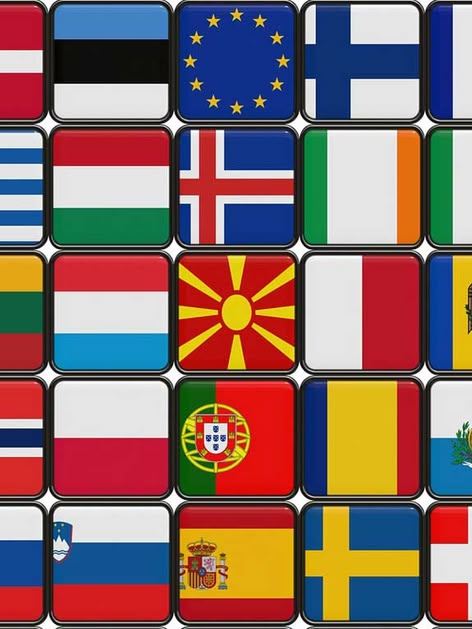International Tongue Twisters: Easy, funny and difficult from different languages

How do you best learn pronunciation with Tongue Twisters?
With the help of International Tongue Twisters, you can improve your English pronunciation incredibly quickly and efficiently and learn new words at the same time. Tongue Twisters are especially good for learning pronunciation because tongue twisters usually combine sounds that are difficult to pronounce. However, if you practise these sounds regularly with the help of tongue twisters, you will quickly internalise the pronunciation of the language you are learning and eventually improve your pronunciation of normal sentences and words. The following three steps for learning with tongue twisters show you how you should proceed in order to effectively improve your pronunciation.
Three steps to learning a language with tongue twisters
Step 1: Familiarise yourself with the Tongue Twister by reading it silently before reading it aloud for the first time. If necessary, write out unknown words, understand them and learn them.
Step 2: Try saying the Tongue Twister out loud slowly for the first time. Don't despair if you can't pronounce it correctly at first. Difficult Tongue Twisters in particular have to be pronounced slowly several times before they can be spoken fluently.
Step 3: Now you can try pronouncing the Tongue Twister a little faster. As soon as you can say the Tongue Twister quickly several times in a row, you have mastered this Tongue Twister and can practise the next one.
Now that we have found your learning strategy, you can start with the tongue twisters. To get you started, we've put together some short and simple international Tongue Twisters. Next you can find some fun Tongue Twisters and finally you can put your pronunciation to the test with difficult Tongue Twisters.
International Tongue Twisters for beginners
If you are not yet very advanced in learning the language you are currently learning, you should first use shorter and easier tongue twisters to practise your pronunciation. You will soon be able to pronounce these fluently and then move on to slightly harder tongue twisters. However, don't give up immediately if you can't pronounce the tongue twisters quickly and fluently. Practice makes perfect!
The following tongue twisters are particularly suitable for beginners:
English Tongue Twisters for beginners
The blue bluebird blinks.
He threw three free throws.
Four fine fresh fish for you.
He threw three free throws.
She sells sea shells by the seashore.
French Tongue Twisters for beginners
Seize chaises sèches.
Son chat chante sa chanson.
Douze douches douces.
Cinq chiens chassent six chats.
Le ver vert va vers le verre vert.
German Tongue Twisters for beginners
Frische Früchte erfrischen.
Als Anna abends aß, aß Anna abends Ananas.
Blaukraut bleibt Blaukraut, Brautkleid bleibt Brautkleid.
Auf dem Rasen rasen Hasen, atmen rasselnd durch die Nasen.
Spanish Tongue Twisters for beginners
Dábale arroz a la zorra el abad.
Hoy ya es ayer y ayer ya es hoy.
Camarón, caramelo. Caramelo, camarón.
Como poco coco como, poco coco compro.
Funny international Tongue Twisters
When learning a foreign language is stressing you out and you lose some of your motivation, you should resort to funny Tongue Twisters. These will immediately lift your spirits and boost your motivation to continue learning.
Below you will find some funny English, French, German and Spanish Tongue Twisters:
Funny English Tongue Twisiters
Birdie birdie in the sky laid a turdie in my eye.
If cows could fly I'd have a cow pie in my eye.
A synonym for cinnamon is a cinnamon synonym.
If cows could fly I'd have a cow pie in my eye.
Funny French Tongue Twisters
Didon dîna, dit-on, du dos d'un dodu dindon.
La mule a bu tant qu'elle a pu.
Si mon tonton tond ton tonton, ton tonton sera tondu.
Si six scies scient six cyprès, six cents scies scient six cents cyprès.
Funny German Tongue Twisters
Mama mag morgens meistens Milch mit Marmelade mampfen.
Fischers Fritz fischt frische Fische, frische Fische fischt Fischers Fritz.
Ein sehr schwer sehr schnell zu sprechender Spruch ist ein Schnellsprechspruch.
Zwischen zwei spitzen Steinen saßen zwei zischelnde Zischelschlangen und zischten.
Funny Spanish Tongue Twisters
Cuando cuentes cuentos, cuenta cuantos cuentos cuentas.
El perro de Rita me irrita dile a Rita que cambie el perro por una perrita.
Si Sansón no sazona su salsa con sal, sosa le sale la salsa sin sazonar a Sansón.
Compré pocas copas, pocas copas compré y como compré pocas copas, pocas copas pagué.
Difficult international Tongue Twisters
Your language skills are already at a high level and you feel confident in speaking and pronunciation difficult words? Then you can put your language proficiency to the test by trying to pronounce the following difficult English tongue twisters:
Difficult English Tongue Twisters
Six sick hicks nick six slick bricks with picks and sticks.
Betty bought butter but the butter was bitter, so Betty bought better butter to make the bitter butter better.
If practice makes perfect and perfect needs practice, I'm perfectly practiced and practically perfect.
Difficult French Tongue Twisters
Un chasseur sachant chasser doit savoir chasser sans son chien de chasse.
Seize jacinthes sèchent dans seize sachets secs
Ton thé t'a-t-il ôté ta toux ?
Les chaussettes de l'archiduchesse, sont-elles sèches ou archi-sèches?
Difficult German Tongue Twisters
Schwarze Schmeißfliege frisst frisches Fischfleisch, frisches Fischfleisch frisst schwarze Schmeißfliege.
Tuten tut der Nachtwächter. Und wenn er genug getutet hat, tut er seine Tute wieder in den Tutkasten rein.
Zwischen zwei Zwetschgenzweigen sitzen zwei zechenschwarze tschechisch zwitschernde Zwergschwalben.
Wer nichts weiß und weiß, dass er nichts weiß, weiß mehr als der, der nichts weiß und nicht weiß, dass er nichts weiß.
Difficult Spanish Tongue Twisters
La sucesión sucesiva de sucesos sucede sucesivamente con la sucesión del tiempo.
Compré pocas copas, pocas copas compré y como compré pocas copas, pocas copas pagué.
Tres tristes tigres, tragaban trigo en un trigal, en tres tristes trastos, tragaban trigo tres tristes tigres.
Chiquito chanchito cochinito, echado en la charca está, ¡ah! qué chiquito chanchito cochinito que cochinito está.
Conclusion
Practising your pronunciation with Tongue Twisters is a fun break from everyday learning and is a suitable way to distract you from otherwise monotonous learning. However, using Tongue Twisters to learn the pronunciation of the language you are currently learning is by no means useless. As you practise pronouncing Tongue Twisters, you will soon notice that you are making great progress in your pronunciation.
Tongue Twisters are a great way to improve your pronunciation and fluency. With these funny sentences you can practise intonation and speech rhythm. Want to find out how good your languge level is? Then take our placement test.






